
Monday, March 30, 2009
Jesus Christ in the Passover
Sunday, March 29, 2009
Faith like little children
As they were getting ready for bed that evening, ds2 was petting our cat Smokey and having a conversation with her. He told Smokey, "Did you know that God is real and that He made me, and He made you too?"
Dd1 came to me afterwards and told me what he had said. Then she followed it up with, "I really think ds2 is a Christian now!"
I pray they will always keep that faith God has given them!
Thank you, Father God, for our wonderful little blessings!
Faith like little children
As they were getting ready for bed that evening, Jacob was petting our cat Smokey and having a conversation with her. He told Smokey, "Did you know that God is real and that He made me, and He made you too?"
Jayla came to me afterwards and told me what he had said. Then she followed it up with, "I really think Jacob is a Christian now!"
I pray they will always keep that faith God has given them!
Thank you, Father God, for our wonderful little blessings!
Saturday, March 28, 2009
God's Holy Days
I could go on, but this article here says it all much more clearly than I can.
Why Christians Celebrate Biblical Memorial Days
by: Robert Somerville
 In our celebration of traditional Christian holidays, the Biblical Holydays should not be excluded. The motive for the Christian to celebrate Biblical holidays is neither to masquerade as quasi -Jews nor to plunder Jewish customs and traditions, but to honor what our Lord has instituted.
In our celebration of traditional Christian holidays, the Biblical Holydays should not be excluded. The motive for the Christian to celebrate Biblical holidays is neither to masquerade as quasi -Jews nor to plunder Jewish customs and traditions, but to honor what our Lord has instituted. "And the LORD spoke to Moses, saying, "Speak to the children of Israel, and say to them: 'The feasts of the LORD, which you shall proclaim to be holy convocations, these are My feasts." (Lev 23:1-2)
Notice, He did not say these were the feast of the Jews or the feasts of the Christians but "the feast of the Lord". They are memorial days that both Christians and Jews have good cause to celebrate. These festivals were institute by our Father God (Yahweh) in the first Testament and reaffirmed by Jesus (Yeshua) in the New Testament.
Sense the apostle Paul tells us that "Jesus Christ is Lord" (Philippians 2:11), these feast days find their deepest meaning in Jesus the Messiah. Here is perhaps the most compelling statement in the New Testament as to the continued influence and recognition of the Biblical Holydays by the body of Christ in the first century, even among the Gentile Christian churches.
"....For even Christ our PASSOVER is sacrificed for us: Therefore let us keep the feast ....." (I Cor. 5:7-8)
"....I must by all means Keep this FEAST that cometh in Jerusalem.. .."(Acts 18:21 KJV)
"For Paul had determined to sail by Ephesus, because he would not spend the time in Asia: for he hasted, if it were possible for him, to be at Jerusalem the day of PENTECOST...." (Acts 20:16)
"But I will tarry at Ephesus until Pentecost." (1 Cor 16:8)
Nearly thirty years after the death of Jesus (a time when many believe the importance of these celebrations had ceased) the Apostle Paul is still highly motivated with Christian zeal to return to Jerusalem and celebrate the day of PENTECOST. Would he discourage the practice today? Clearly, he would not! The Biblical feast day celebrations were instituted by our God as a system for teaching and served as a liturgical calendar. They identified special times in the year for offering praise, thanksgiving and honor unto our heavenly Father for specific acts on behalf of His people. Every major event in Biblical history occurred on a feast day. The precise dates of Noah's Ark landing on Mt. Ararat, the exodus of Israel from Egypt, the giving of the law at Mt. Sinai, the dedication of Solomon's Temple, the birth of Jesus, His death, burial and resurrection, the coming of the Holy Spirit, are all prime examples of God's faithfulness to His appointed times and seasons. Proper recognition of these special days of memorial is being restored to the church as a vital part of worship and celebration.
HISTORICAL PERSPECTIVE
Traditionally, Christians have not given formal recognition to the seven Biblical feast days (Leviticus 23). The preference has been to continue the honoring of such traditional holidays as Christmas, Easter and All Saints Day (Holy Evening or Halloween) etc. Interestingly, these are calendar days for which there is no biblical support even though the events so honored may be biblical. How did this condition come about and who is responsible? There is certainly no record that the first century church ever celebrated the traditional holidays, as we know them. They were an "invention" of the subsequent church leadership. There is, however, abundant evidence to confirm that the early church continued to celebrate the biblical feast days.
The historical record confirms, that the cessation of celebrating biblical Feast Days by the followers of Jesus Christ was, brought on by a growing anti-semitic spirit (resentment of Jews and things Jewish) that invaded the church by the second century. Regrettably, this spirit has resulted in almost total deletion of everything Jewish from the doctrine and liturgy of the church, replacing it with alternative forms and titles adopted from other religions and introduced by various church fathers. By the beginning of the fourth century, Constantine, who had become both head of the church and Emperor of Rome, forbade the recognition of anything that remotely smacked of Jewishness to the point of imprisonment and even death. An example of this can be seen by the actions taken at the Council of Nicea in 325 AD. The Church, which had been commemorating the death and resurrection of Christ on the Passover day, changed the date for observing the resurrection to make it correspond with the pagan carnival Easter instead of what they considered to be the Jewish feast of Passover. Today we are victims of that orchestrated effort and therefore the Christian's sense of value for celebrating Biblical Memorial Day became almost non-existents but that is changing.
RESTORATION ISSUES
A better understanding of the Biblical festivals in the light of the gospel of Jesus Christ is being fully restored to the church. Still the question invariably arises, but what about the New Testament scriptures, which seemingly discourage the practice of observing "special days"? Such conclusions are often drawn as a result of misinformation, faulty interpretation of scripture, unbelief, and fear and with some degree of hypocrisy. For example, the following scripture is often cited as a proof text for non- observance of Biblical feast days:
"Ye observe days, and months, and times, and years. I am afraid of you, lest I have bestowed upon you labour in vain." Gal.4:10-11
Here is a classic example of faulty interpretation of scripture. This reference has nothing to do with Biblical memorial days. Paul's statement to the Galatians is concerning their returning to former pagan or heathen practices. Clearly he is not speaking of the Biblical celebrations. This is borne out in the very structure of the letter itself. Notice, this was something they were reinstituting that they had been practicing when they worshiped false gods (see verse nine). The Galatians had never celebrated Biblical (Jewish) holy days. They were Gentiles, therefore, they could not have been returning to the Jewish festivals as some might claim.
The truth is, few Christians actually believe this scripture to be absolute or if they do, their actions are inconsistent with their beliefs. If taken at face value, we would simply have to refrain from celebrating or memorializing any "days" religious or secular. As it now is, we often go to great lengths and great expense both at home and in church to celebrate such times as Christmas, Easter, birthdays, anniversaries, Mother's Day, Fourth of July, Thanksgiving, etc. To be sure, we "observe days" and they are often accompanied with great pageantry and extravaganza. The point is that many have somehow concluded that apparently we are free to celebrate any holidays except the Biblical days; these are somehow forbidden and viewed as being strictly Jewish and therefore anti-Christ, non-Christian and indeed dangerous. Yet the ones we have arbitrarily created for ourselves which have little or no Biblical support are somehow "safe" and honorable, even sacred. The intent here is not to denigrate the non-biblical times of celebration but rather to expose the duplicity inherent in the Galatians 4:11 stance for not honoring the Lord's appointed feast days while proceeding to devise our own. Again, Paul's reference here is concerning pagan holidays and not the God ordained memorial days, which the same writer had encouraged the Church to "therefore keep" (1 Corinthians. 5:7-8).
Here is another example of faulty interpretation of scripture concerning special days.
"Let no man therefore judge you in meat, or in drink, or in respect of an holyday, or of the new moon, or of the sabbath days:" (Colossians 2:16)
This is not an indictment against feast day celebrations but a caution about judgmental attitudes. One would be hard pressed to find anyone who practices this as is commonly interpreted. The truth is, there are on-going judgmental attitudes manifested in the church about meats, drinks, holydays and Sabbath observance. Those who don't observe such things tend to reflect on those who do as "legalists" (strict adherents to the Law). Those who observe them quite often view those who don't as unrighteous or at best, second-class citizens of the Kingdom. Simply stated, "those who do judge those who don't and those who don't judge those who do" and on it goes. Yet the Christ-like attitude is "Judge not" (Mt. 7:1). The Apostle Paul gives similar advice to the church in Rome.
"One man esteemeth one day above another: another esteemeth every day alike. Let every man be fully persuaded in his own mind. He that regardeth the day, regardeth it unto the Lord; and he that regardeth not the day, to the Lord he doth not regard it. ...But why dost thou judge thy brother?" (Romans 14:5, 6, 10)
No one's righteousness should be judged on the basis of these issues, any more than one should be judged as to whether or not he is a Christian on the basis of his church attendance. Righteousness is simply not of works. If one is "persuaded" that celebrating feast days enhances his worship of God, he should not be judged for it. All judgment of men's hearts is best left in the hands of God.
There is a third judgmental group who are selective in their interpretation of some aspects of Col. 2: 16. They arbitrarily select the particular things they are for or against and proceed to categorize them as a do or don't. For example: some who would extend liberty for one to eat any and all kinds of meats might well be the first to place restrictions on what is acceptable to drink, then proceed to preach and teach that judgment. In our zeal for righteousness we must guard against the possible distortion of scripture. Paul is simply trying to avoid the pharisaical attitudes of judgment and nothing more.
A MATTER OF WORSHIP
Now, let us establish some proper motivational factors. Out celebration of the Biblical memorial days are not a matter of salvation or acceptance before God. Therefore our motive in celebration should be as God originally intended; remembrance and honor for what He has done. God said his feasts were to be celebrated "forever" (Ex. 12:14, Lev. 23:21, Lev. 23:41). If God never changes, and we have His word on that He does not (Mal. 3:6), it is obvious that He still desires to be worshiped in this manner. The feast days retain a deep abiding meaning for the Christian since their fullness (not termination) is found in Jesus the Messiah. It is safe to say that the Christian has as much reason for celebrating these festivals as does the Jew and perhaps more (1 Corinthians. 5:8). The feast days contain more divine information, spiritual lessons and prophetic reflections than perhaps any subject of scripture. Subsequently, It is through our deliberate recognition and celebration of them that the riches of truth contained in them is released for our understanding.
The things that are done to celebrate these days are not so important as the acknowledgement of the day itself. We need not be concerned with ancient ritualism from which we were liberated in Christ (Heb. 9:10) but focus on the basic principle of their prophetic and spiritual meaning as is revealed under the New Covenant. Since it is not a matter of salvation but one of worship, there is liberty and flexibility in what we can do as a remembrance practice. The spirit of praise and worship simply demands the recognition of the Biblical feast days. No other conclusion can be drawn.
The question before us is; should Christians celebrate the feast days? Clearly we should. Why? Because they are Biblical, Christ-centered and God ordained. While feast celebrations may not be essential to salvation, they are certainly essential for a more perfect worship order in the church. Reason simply dictates this conclusion.
REMEMBER
Feast days are not Jewish in an ethnic sense or Christian in a religious sense but they are divine in a Biblical sense and therefore eternal and universal.
Friday, March 27, 2009
New biters!
Acee the moth and Jonathan the Moth Hunter!
After looking on this site, we recognized the caterpillar. We saw this caterpillar just a few weeks ago only a few feet away from where we found the moth yesterday! These are not common in our area, so we're assuming it was Acee in the pupa stage! How cool! :)

Some information from another site here:
The short adult life span of the Luna moth is related to their adaptive coloration. Moths and butterflies are either procryptic, with colors and markings that match the native environment and conceal the insect, or aposematic, with vibrant colors that draw attention to denote that the insect is poisonous or tastes bad. The survival strategy of the two types results in differences in longevity. The aposematics live longer than the procryptics in order to condition predators to the visual warning. The procryptics die as quickly as possible so that predators will not be able to figure out how to detect them. Saturniids are represented by both types; studies have revealed that the procryptics fly more so as to exhaust themselves and die quickly while the aposematics conserve their energy. Luna Moths are procryptic.
So Jonathan has all these different nature books and he had read this before and remembered something about them being poisonous. So he took this video and really, truly believed he was in danger!!! It was so hard not to crack up when I was watching it! It sort of reminds me of a young Crocodile Hunter......so here he is;
As you can see in the pictures below, they did learn that the moth was not poisonous to us!



Thursday, March 26, 2009
Juice is awesome!!!!

About two years ago, a couple at my parents' church GAVE me their almost-new Champion! My old one doesn't have a couple of the features on the newer one, specifically the safety feature where it will not turn on until it is all assembled (a must-have if kids will be juicing!), so I was so thrilled and honored that they wanted to give it to us!
Today my kids and I got the juicer out and made some REAL lemonade! This is my absolute favorite lemonade in the world! You just take 1/4 lemon and leave the peel on and four apples. Juice them up and drink! YUM!!!!! We also made some "oraple" juice, which is orange and apple. Jonathan came up with the name a few days ago. I had a sip of it and wanted more, but there was only enough for the kids to have about 6 ounces each.
Since I am on a juice fast this week, Myles is doing it with me and we are drinking several cups each day of the lemonade to hopefully dissolve that stone(s) and cleanse our bodies. I am LOVING this fresh, raw juice! It is so good and so nutritious!!!
And I am noticing a lot of energy and I am starting to feel better! Yea!
After this week I plan to eat high raw vegan (again). I want to do 100% raw, but I don't know if I could stick to it right now. So I'm just keepin' it real. :) I know from lots of past experience that this is so healthy and I feel better, lose weight, have tons of energy, etc. It's just hard to stick to it because healthy foods are not addicting like the junk most of us eat daily. Wouldn't it be cool if we had an uncontrollable craving for carrots or celery? Or how about broccoli? :)
Jonathan brought me to tears!
"You know how milk comes out of a cow's gutters?"
I was laughing so hard he never got to the punch line!
Memorizing Scripture with an mp3 player!!!!
So from this web site:
But I don’t do it much. I love memorizing Scripture because it enriches my prayers with Scripture, it helps me counsel people well, it saturates and sanctifies my mind with God’s words, and in general helps me to set my mind on things above (Col. 3:2) and to think about what is pure, lovely, commendable, excellent, and worthy of praise (Phil. 4:8).
I don’t do it nearly as much as I’d like, however, because I can’t find the time. My devotional times, when my snooze button goes untouched, already generally run to 60-90 minutes, so I have a hard time finding a way to fit memorization in—especially because I find it to be (for me personally) among the most time-consuming of the spiritual disciplines.
Fortunately for me, the ESV Online Bible site absolutely rawks.
I always knew that you could listen to streaming audio of individually selected passages of Scripture from the ESV online—provided you’re willing to sit within the length of your headphone cord from your computer and listen to them. A few times I’ve tried to do this while washing the dishes, setting my laptop next to the sink. But I’ve splashed soap and water a bit too close to my (church-owned) keyboard enough times that I stopped doing that. One time I actually forgot that I was connected to my laptop rather than my iPod, took a step away from the sink while my headphones were in, and only saved my laptop from being completely submerged in soapy water mixed with spaghetti sauce by virtue of my catlike moves and reflexes.
But this morning—a revelation—I found a way to download individually selected passages from the ESV as MP3 files, so that I can load them onto my iPod, hit “repeat,” and listen to passages I want to memorize about a dozen times between my garage and my office. I’m using it to keep fresh on passages I’ve already memorized and don’t want to lose, and I’m going to use it to memorize the Sermon on the Mount (Matt. 5:3-7:27) while I’m on the ellipsis machine at the gym.
There are a few steps to it, though, so here’s how it goes (I promise, it’s not as complicated as it sounds):
1. Open another browser tab so that you can refer back to these instructions as you do what I tell you to do.
2. Go to the ESV Online site.
3. In the top right corner, click on the “Options” tab.
4. Under “Audio Options,” click in one of the buttons for MP3 (I use David Cochran Heath because he has the most “normal” sounding voice).
5. At the bottom left of the page, click the “Save” button (that should open a page that says, “Your preferences have been saved” at the top).
6. Type the passage you want (e.g. Ephesians 4:29 or Matthew 6:25-34) into the search bar and click “search.”
7. When the passage comes up, you should see a link that says “Listen” next to the passage reference. Control-click (silly PC users right-click) on the “Listen” tab. A menu box should come up. Click on “Save Link As…”
8. When the box pops up, you will have to add an extension name on the end of the title if it doesn’t have one. So, for example, if the title of your selection is “49004029″ then you need to add .mp3 on the end, so that it reads “49004029.mp3″. Save the file to your Desktop.
9. Find the file on your desktop and open it with iTunes or Windows Media Player, or whatever you use. You can then load it onto your iPod, MP3 player, or burn it onto a CD for your car.
Yes, folks, it’s just that simple.
And here’s the most amazing part: It’s free! If it were almost any other organization there would be a subscription fee or a download fee or a 1-month access fee, etc., etc. Thank you to the good people at Crossway and the English Standard Version!
Let me know if you have any problems. Otherwise, redeem your commute! Memorize Scripture!
Giveaway!
Pray for this family!!!!
Contact: Gingi Edmonds, www.gingiedmonds.com, 559-772-7911
MEDIA ADVISORY, Mar. 24 /Christian Newswire/ -- Some of you may have seen the major news story of the private plane that crashed into a Montana cemetery, killing 7 children and 7 adults.
But what the news sources fail to mention is that the Catholic Holy Cross Cemetery owned by Resurrection Cemetery Association in Butte - contains a memorial for local residents to pray the rosary, at the 'Tomb of the Unborn'. This memorial, located a short distance west of the church, was erected as a dedication to all babies who have died because of abortion.
What else is the mainstream news not telling you? The family who died in the crash near the location of the abortion victim's memorial, is the family of Irving 'Bud' Feldkamp, owner of the largest for-profit abortion chain in the nation.
Family Planning Associates was purchased four years ago by Irving Moore "Bud" Feldkamp III, owner of Allcare and Hospitality Dental Associates and CEO of Glen Helen Raceway Park in San Bernardino. The 17 California Family Planning clinics perform more abortions in the state than any other abortion provider - Planned Parenthood included - and they perform abortions through the first five months of pregnancy.
Although Feldkamp is not an abortionist, he reaps profits of blood money from the tens of thousands of babies that are killed through abortions performed every year at the clinics he owns. His business in the abortion industry was what enabled him to afford the private plane that was carrying his family to their week-long vacation at The Yellowstone Club, a millionaires-only ski resort.
The plane went down on Sunday, killing two of Feldkamp's daughters, two sons-in-law and five grandchildren along with the pilot and four family friends. The plane, a single-engine turboprop flown by Bud Summerfield of Highland, crashed into the Catholic cemetery and burst into flames, only 500 ft. from its landing destination. All aboard were killed.
The cause of the crash is a mystery. The pilot, who was a former military flier who logged over 2,000 miles, gave no indication to air traffic controllers that the aircraft was experiencing difficulty when he asked to divert to an airport in Butte. Witnesses report that the plane suddenly nosedived toward the ground with no apparent signs of a struggle. There was neither a cockpit voice recorder nor a flight data recorder onboard, and no radar clues into the planes final moments because the Butte airport is not equipped with a radar facility. Some speculate that the crash was due to ice on the wings, but this particular plane model has been tested for icy weather and experts have stated that ice being the cause is unlikely.
In my time working for Survivors of the Abortion Holocaust, I helped organize and conduct a weekly campaign where youth activists stood outside of Feldkamp's mini-mansion in Redlands holding fetal development signs and raising community awareness regarding Feldkamp's dealings in child murder for profit. Every Thursday afternoon we called upon Bud and his wife Pam to repent, seek God's blessing and separate themselves from the practice of child killing.
We warned him, for his children's sake, to wash his hands of the innocent blood he assisted in spilling because, as Scripture warns, if "you did not hate bloodshed, bloodshed will pursue you". (Ezekiel 35:6)
A news source states that Bud Feldkamp visited the site of the crash with his wife and their two surviving children on Monday. As they stood near the twisted and charred debris talking with investigators, light snow fell on the tarps that covered the remains of their children.
I don't want to turn this tragic event into some creepy spiritual 'I told you so' moment, but I think of the time spent outside of Feldkamp's - Pam Feldkamp laughing at the fetal development signs, Bud Feldkamp trying not to make eye contact as he got into his car with a small child in tow - and I think of the haunting words, 'Think of your children.' I wonder if those words were haunting Feldkamp as well as he stood in the snow among the remains of loved ones, just feet from the 'Tomb of the Unborn'?
I only hope and pray that in the face of this tragedy, Feldkamp recognizes his need for repentance and reformation. I pray that God will use this unfortunate catastrophe to soften the hearts of Bud and Pam and that they will draw close to the Lord and wash their hands of the blood of thousands of innocent children, each as precious and irreplaceable as their own.
"I have set before you life and death, the blessing and the curse. Choose life, then." (Deut. 30:19)
Gingi Edmonds is a freelance pro-life activist, writer and photographer based out of Hanford, California. Gingi writes a bi-monthly ProLife Opinion Column and is available for pro-life presentations and speaking engagements. Visit www.gingiedmonds.com for more information.
Wednesday, March 25, 2009
Jack's EEG
So then we checked in and just as we were about to head down the hall to start, he woke up. Go figure. He was still very sleepy though, so she was hoping to get him back to sleep. Nearly two hours later, she finally gave up.
She got some good readings though because he almost fell asleep a couple of times and was very still. She said there were a few things on the test that she thought might be abnormal. I guess that's sort of good AND bad news, because I don't want him to be abnormal at all, but if there is something wrong, I want to know what it is so we can know how to fix it, or at least manage it. The lady said it will probably be about two weeks before we get the results. (SIGH)


Attaching the wires with cotton balls on top.



Wrapping the wires and cotton balls so they couldn't come loose!


Now that we are home, he is sleeping soundly right next to me. :) I hope we don't have to do this again, at least not for a long, long time. He did great though. Now for the MRI! They'll have to sedate him for that. :(
Tuesday, March 24, 2009
Jayla's new dance costume!

Head Coverings through the ages

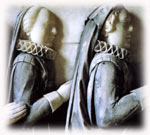
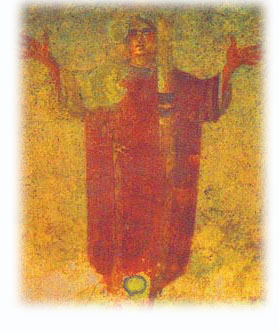 |
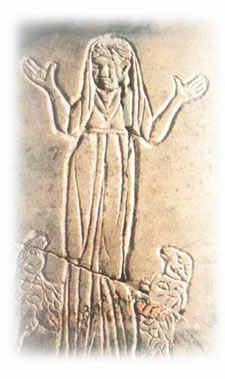 |
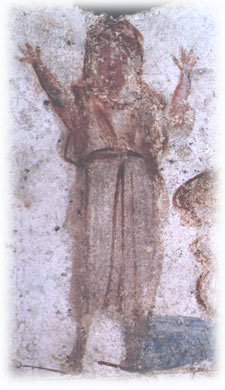 |
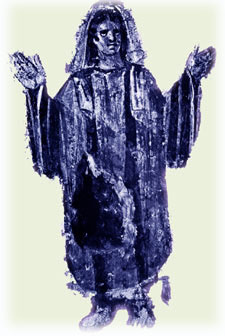 |
 |
During the Middle Ages, Christian women continued to wear head coverings for modesty and prayer. These coverings were quite substantial. In fact, the traditional veil worn by Roman Catholic nuns until recent times were based on the coverings that most Christian women wore in medieval Europe. |
 |
 |
 |
 |
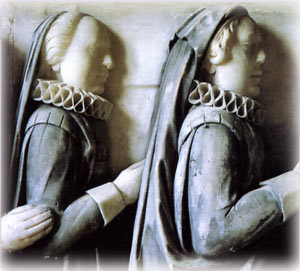 |
 |
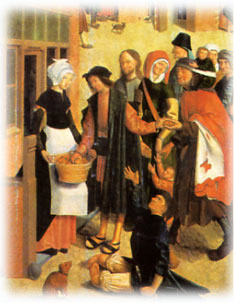 |
Around the time of the Reformation, the cap form of head covering became popular in northern Europe in place of a hanging veil. |
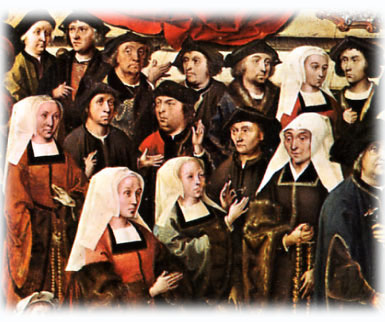 |
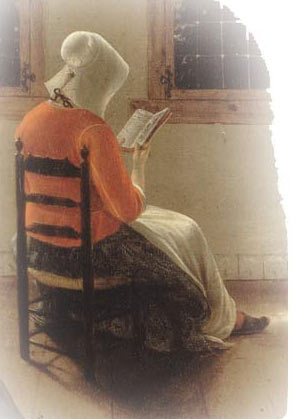 |
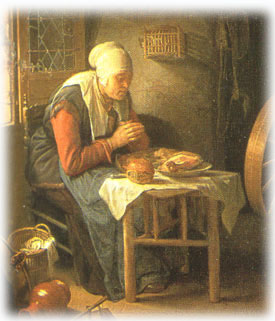 |
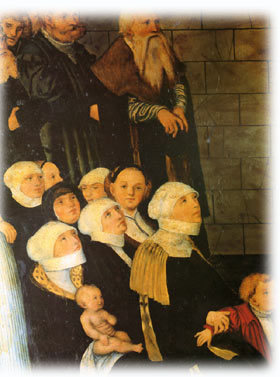 |
 |
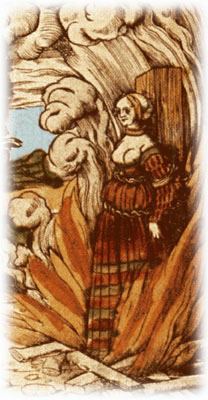 |
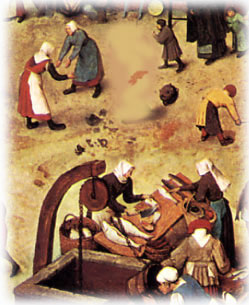 |
 |
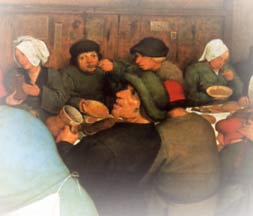 |
 |
In the sixteenth century, the cap type of covering replaced the hanging veil in western Europe and in the newly discovered Americas. |
 |
 |
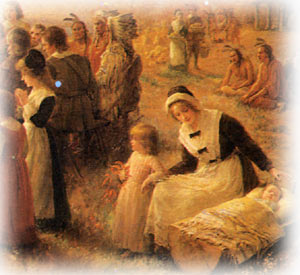 |
 |
 |
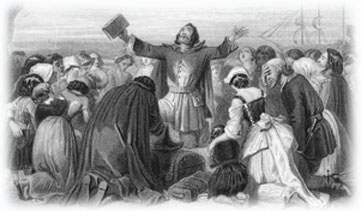 |
 |
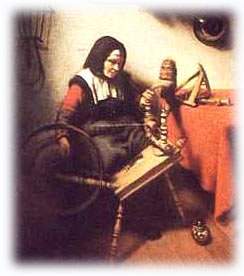 |
 |
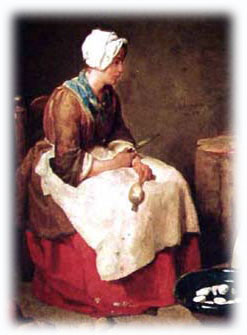 |
 |
| During the 1800's, middle and upper class women generally wore bonnets for head coverings. Sometimes these were more a matter of fashion than of modesty. However, among the common people, caps and veils were still quite common. |
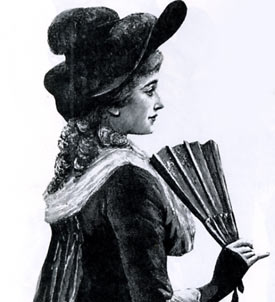 |
 |
 |
 |
 |
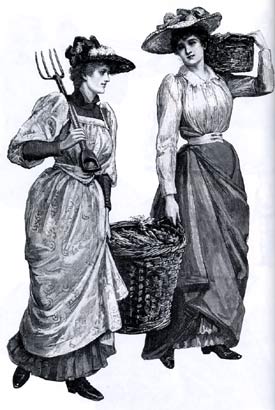 |
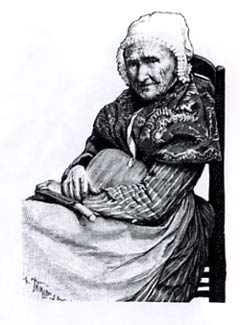 |
 |
 |
 |
 |
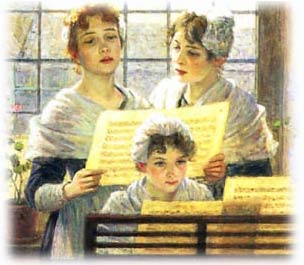 |
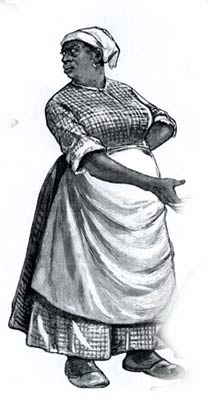 |
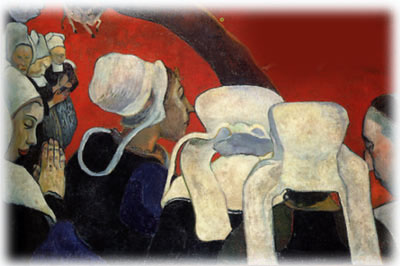 |
 |
| |
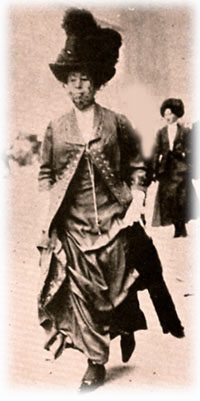 |
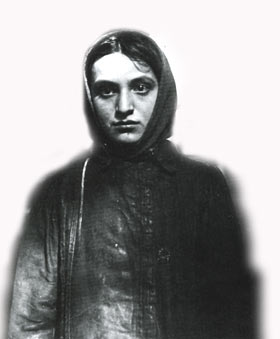 |
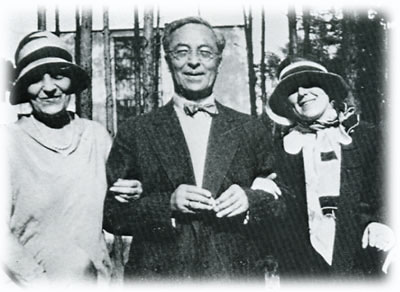 |
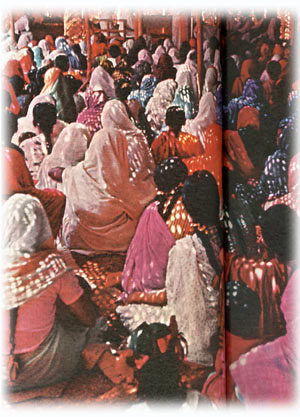 |
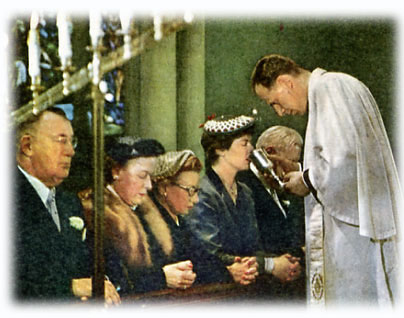 |
 |
 |
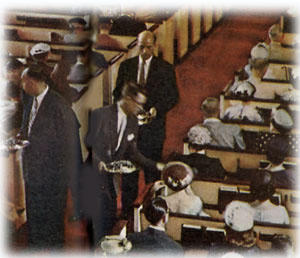 |
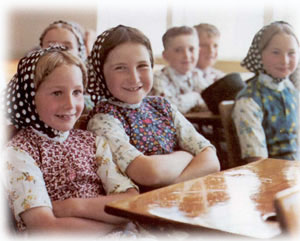 |
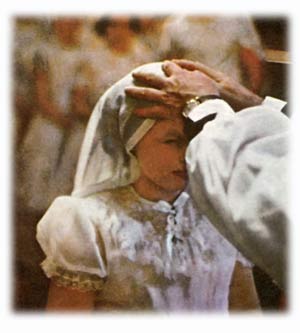 |
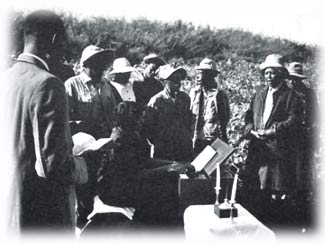 |
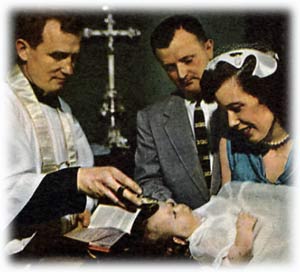 |
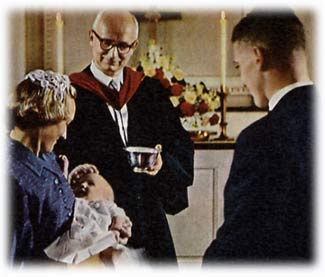 |
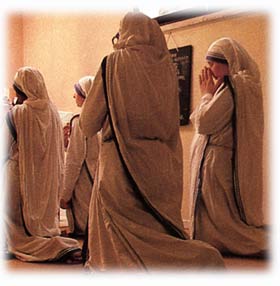 |
